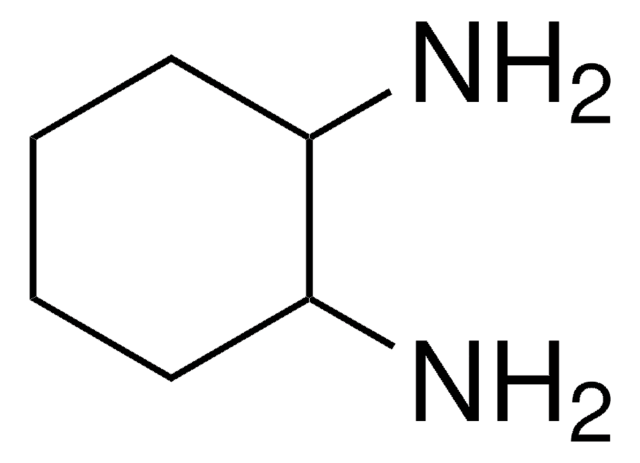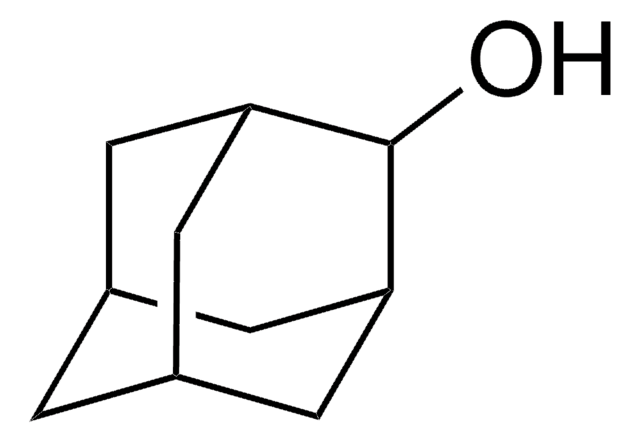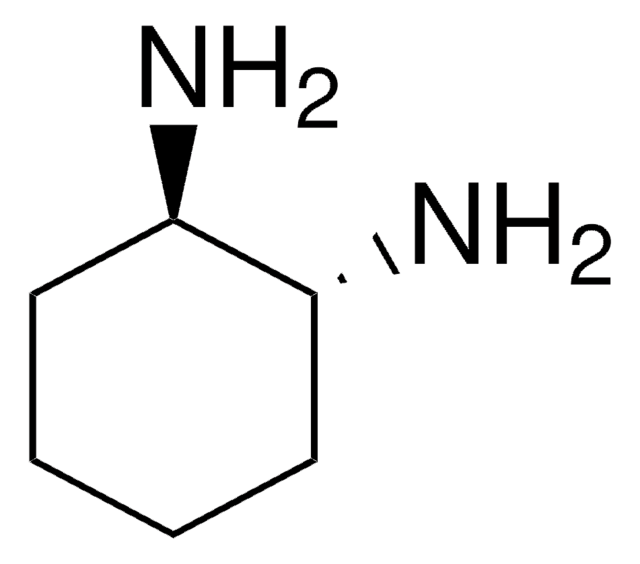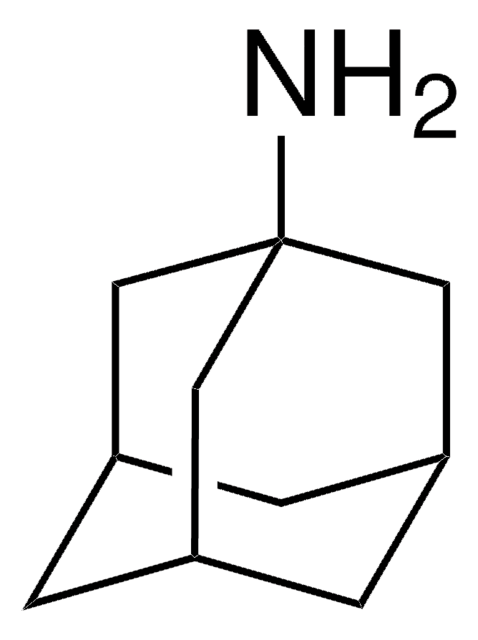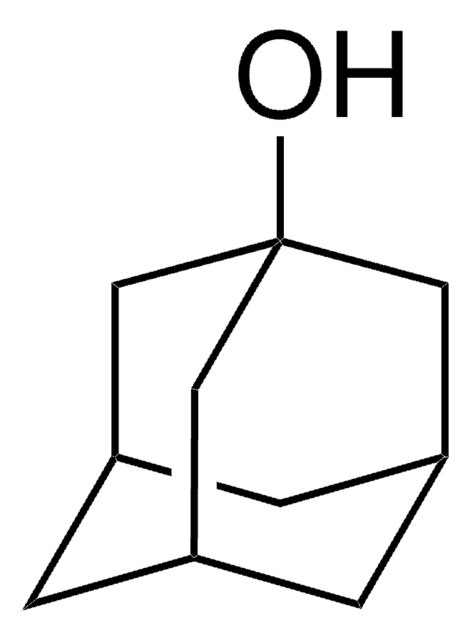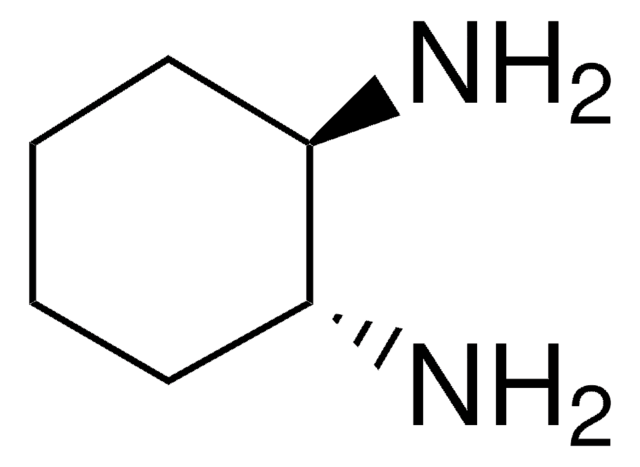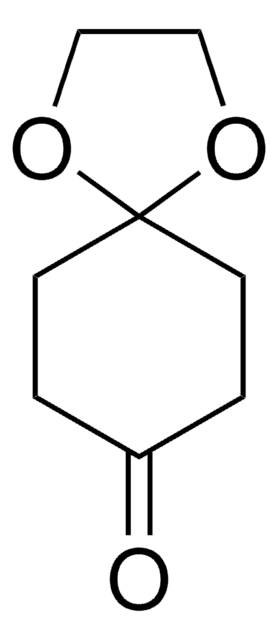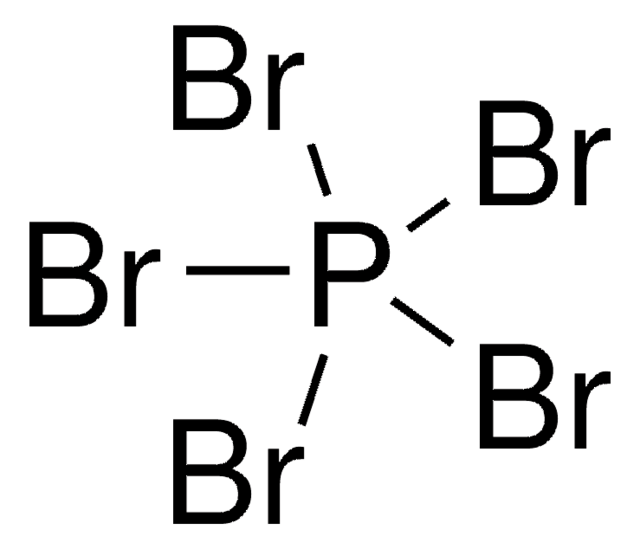146048
2-Adamantanone
ReagentPlus®, 99%
Synonym(s):
2-Oxoadamantane, Tricyclo[3.3.1.13,7]decanone (9CI)
Sign Into View Organizational & Contract Pricing
All Photos(3)
About This Item
Empirical Formula (Hill Notation):
C10H14O
CAS Number:
Molecular Weight:
150.22
Beilstein:
1210235
EC Number:
MDL number:
UNSPSC Code:
12352100
PubChem Substance ID:
NACRES:
NA.22
Recommended Products
Quality Level
product line
ReagentPlus®
Assay
99%
form
solid
mp
256-258 °C (subl.) (lit.)
functional group
ketone
SMILES string
O=C1C2CC3CC(C2)CC1C3
InChI
1S/C10H14O/c11-10-8-2-6-1-7(4-8)5-9(10)3-6/h6-9H,1-5H2/t6-,7+,8-,9+
InChI key
IYKFYARMMIESOX-SPJNRGJMSA-N
Looking for similar products? Visit Product Comparison Guide
Related Categories
General description
2-Adamantanone on deprotonation in the gas phase affords the corresponding β-enolate anion. It reacts with 1,1-dilithio-1-sila-2,3,4,5-tetraphenylsilole to yield 5-silafulvene.
Application
2-Adamantanone was used in the synthesis of dispiro N-Boc-protected 1,2,4-trioxane and (+/-)-1-(adamantan-2-yl)-2-propanamine.
Legal Information
ReagentPlus is a registered trademark of Merck KGaA, Darmstadt, Germany
Storage Class Code
11 - Combustible Solids
WGK
WGK 2
Flash Point(F)
Not applicable
Flash Point(C)
Not applicable
Personal Protective Equipment
dust mask type N95 (US), Eyeshields, Gloves
Choose from one of the most recent versions:
Already Own This Product?
Find documentation for the products that you have recently purchased in the Document Library.
Customers Also Viewed
Matthew M Meyer et al.
The Journal of organic chemistry, 75(12), 4274-4279 (2010-05-26)
Deprotonation of 2-adamantanone (1) in the gas phase affords the corresponding beta-enolate anion. This ion was independently prepared by the fluoride-induced desilylation of 4-trimethylsilyl-2-adamantanone, and its reactivity and thermodynamic properties were measured (DeltaH degrees(acid) = 394.7 +/- 1.4, EA =
Sunil Sabbani et al.
Bioorganic & medicinal chemistry letters, 18(21), 5804-5808 (2008-10-11)
Dispiro N-Boc-protected 1,2,4-trioxane 2 was synthesised via Mo(acac)(2) catalysed perhydrolysis of N-Boc spirooxirane followed by condensation of the resulting beta-hydroperoxy alcohol 10 with 2-adamantanone. N-Boc 1,2,4-trioxane 2 was converted to the amine 1,2,4-trioxane hydrochloride salt 3 which was subsequently used
Yulan Chen et al.
Nature chemistry, 4(7), 559-562 (2012-06-22)
Nature uses mechanochemical transduction processes to achieve diverse and vital functions, such as hearing, cellular adhesion and gating of ion channels. One fascinating example of biological mechanotransduction is the emission of light on mechanical stimulation. However, molecular-level transduction of force
Hassen Jaafar et al.
Dalton transactions (Cambridge, England : 2003), 40(1), 92-106 (2010-11-19)
We report that the oxygen sensitivity of some Fe(II) complexes with tripodal ligands can be used, with benefit, in the oxidation of cyclohexane under mild conditions. Depending on the solvent, two very different reaction pathways are involved, which share the
Irina S Toulokhonova et al.
Journal of the American Chemical Society, 126(17), 5336-5337 (2004-04-29)
Reaction of 1,1-dilithio-1-sila-2,3,4,5-tetraphenylsilole with 2-adamantanone produces a 5-silafulvene. This represents a new method for synthesis of silenes, leading to the first example of a silapentafulvene.
Our team of scientists has experience in all areas of research including Life Science, Material Science, Chemical Synthesis, Chromatography, Analytical and many others.
Contact Technical Service